Robben Ford has been playing guitar professionally for over four decades, and was ranked one of the Greatest 100 Guitarists of the 20th Century by Musician magazine. He has released multiple solo albums, helped launch the jazz fusion band Yellowjackets, and has worked with artists ranging from Joni Mitchell to Jimmy Witherspoon to Kiss to George Harrison to Miles Davis.
This phone interview took place on 2/15/12, and was the basis of a preview article for the Robben Ford and the Yellowjackets concert at the Lobero Theatre on 2/17/12.
Jeff Moehlis: What can we look forward to at your upcoming concert with the Yellowjackets at the Lobero Theatre?
Robben Ford: I was with the Yellowjackets many years ago, so there’s a lot of history there. But we play together rarely anymore. In various situations I might go in and record for them, or one of them for me. Jimmy and I play together sometimes. My point being, when we do get together, it’s always a lot of fun, for lack of a better word. It’s like seeing friends you haven’t seen in a long time, getting together with people that you really like. So there’s a lot of joy in it really.
JM: Can you tell me about the current Yellowjackets line-up?
RF:: The band is actually going through some changes right now. Jimmy Haslip, the bassist, and Russell Ferrante, the keyboard player, are the remaining members from the original band.
JM: Bob Mintzer will be on sax, also?
RF: Bob will not be there. He had a prior commitment that he couldn’t change.
JM: And then Will Kennedy on drums.
RF: Yeah.
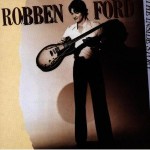
JM: As you said, you have a lot of history with these guys, going back to your solo album The Inside Story and then the first two Yellowjackets albums. Could you give a quick reflection on that early work as part of your development as a musician?
RF: It was one of those groups – originally it was Ricky Lawson on drums, Jimmy, Russ, and me – when we started playing together, when we finally got that group of four, it took a minute, you know, for all of us to come together. Basically, conceptually, it started with Russell and me. Once that group of four came together, all of us had the same feeling that this was something that was definitely meant to be. I mean, we didn’t talk about it.
It doesn’t happen that often in anyone’s musical life that they really find a group of people that just completely seem to be on the same wavelength. They want to make the same music in the same way. It’s just very rare that that happens. You’re lucky if it happens three or four times in your lifetime. One of the reasons why the group Yellowjackets has stayed together for so long is because they just like playing together, you know? [laughs] And once you lose that, you’re like, wow, will that ever happen again? You don’t know. That’s another reason why it’s such a great pleasure to get together and play with these guys. Because that never seems to go away, that musical connection just never seems to go away.
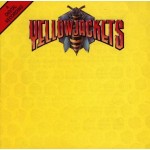
JM: Do you plan to perform any of those early songs from those first few albums?
RF: Not from my record. I’m not sure – we might be doing something from the first Yellowjackets record. But, you know, we don’t really think that way. We’re not nostalgic in that way. It’s just what happens when we play together is what we like. It could be anything [laughs].
JM: You played on one song, “Magnolia”, on their latest album. How did that come about?
RF: We always kind of think of each other. Something comes up and you think, “Oh man, Russell would be perfect for this.” I do that. He’s on several of my records. I brought him in because he’s the guy I wanted. I think, as well as that being one of the reasons they called me, we had been talking about doing something together, touring. And so this is an opportunity to reconnect. They brought me in for the song, and at the same time we were already talking about doing some shows together at some point this year. It hasn’t quite happened yet, except for our concert here at the Lobero, but we all have that intention.
JM: So it may happen, but no announcement yet.
RF: Yeah, but it probably will.
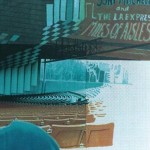
JM: You’ve worked with a number of amazing musicians over the years. First, I’m curious, what was it like working with Joni Mitchell?
RF: As far as I’m concerned, she’s the greatest musical artist of the 20th century. When I was invited to join the L.A. Express and tour with her, I knew very little about her. Even the group L.A. Express, I didn’t know who those people were. So it was kind of out of the blue that that came to me. I was playing blues guitar with Jimmy Witherspoon at that time. So, in a way, I almost didn’t fit. But they were all very kind to me [laughs], and kind of nurtured me along. And I found myself in the best musical situation that I could’ve been in, really, to open my mind to more music than I had really paid much attention to. I was very into blues and jazz, more into jazz. Joni Mitchell – I thought of it as folk music. But certainly, way beyond folk music. As I say, she became, in my opinion, the greatest musical artist of the 20th century. So it was an incredible opportunity to be able to do that. You know, I was 22 years old, and suddenly I was playing with top-notch musicians with this incredible, beautiful artist. It was just awesome, really.
JM: Could you comment on her guitar style? I know she uses all these different tunings. I find it to be unique – it’s not just strumming the standard chords.
RF: For sure. She’s a great musician, and that’s not necessarily the case with singer-songwriters, that they’re necessarily great musicians. She has a huge mind, so she approaches the guitar as an artist, not as a guitarist. Her technique is minimalist. She plays for the most part with one finger [laughs]. You know, she just lays one finger on the fretboard and there’s a chord. And she moves it around the guitar. She does use her other fingers as well, but they’re very basic finger positions for guitar. But the tunings create this really different atmosphere, and again that’s the musician in her. That she hears music in this way, and can actually produce music in this way – it’s completely unique. She’s a completely unique artist. There’s no one like her.
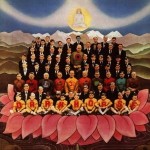
JM: Around that time, you toured with George Harrison.
RF: Kind of in the middle. Yeah, first Joni, then George, then back with Joni again.
JM: Could you describe the George Harrison that you knew? What was he like at that time?
RF: Hard to talk about publicly.
JM: OK, whatever you’re comfortable with.
RF: I say that only because there was a tremendous amount of drugs around. And drugs don’t do anyone any good [laughs]. But, as a person, he was very kind to me. He, too. I always use the word “kind” because these people were older and more sophisticated than me. I was just really a bumpkin from a little Northern California town, kind of thrust into the world. So the whole thing was a bit overwhelming for me. In any case, George was great. I stayed at his house for days on end, twice, because I was in England with Joni, and sat in the ballroom of his estate in Henley-on-Thames, and listened to Ravi Shankar and the Indian Orchestra rehearse everyday. I’d sit on a huge pillow drinking tea, listening to them rehearse the band for the tour. So that was pretty rare. He gave me a guitar at the end of the tour as kind of a parting gift. He had it made for me.
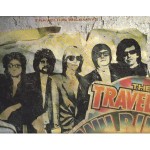
I ran into him at the Grammys, years later. I was up for a Grammy for something, and he was there with The Traveling Wilburys. They were all at the Warner Brothers party, and I was on Warner Brothers at the time. So he was over there kind of in a receiving line. People were just coming up and saying hello, and I walked up, said hello to him, and he said, “Oh Robben, how are you?” And he said, “I think of you.” It was sweet, you know? That was the last time I saw him. Again, he was good to me, and obviously a good person.
I don’t know if you’ve seen the film [Martin Scorsese’s Living In The Material World]? There’s footage of part of the tour that we were on.
He was a very special human. He really was. There was even more to George than anyone knew, as far as how expansive his mind was.
JM: Another of the giants that you played with was Miles Davis. How did you get that gig, and what did you learn from playing with Miles?
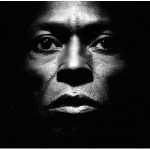
RF: Miles was making the record Tutu, and it was being produced by Tommy Lipuma. This was Miles’ first record with Warner Brothers after he left Columbia after all those years. Tommy Lipuma signed and produced his first record. They were making the record, and Mike Stern left Miles’ band, so Miles asked Tommy if he knew any guitar players. And Tommy has signed and produced the Yellowjackets – that’s where I met Tommy, when he signed the Yellowjackets to Warner Brothers.
So he recommended me and played him some recordings, and Miles decided he liked what he heard, and he called me and asked me to join the band. Interestingly, Jimmy Haslip was sort of in the loop there, because Tommy called Jimmy Haslip asking for my phone number. Jimmy said, “You gotta let me call Robben.” He wanted to be the one to tell me that Miles Davis was looking for me. So he did, and gave me Tommy Lipuma’s number. I called Tommy, and Tommy said, “You wanna do it?” I said, “Yeah, man!” He said, “OK, I think Miles is at the studio. I’m gonna call him, and I’ll have him call you.” And I said, “Cool!”
For three days, every time the phone rang I’m thinking it’s gonna be Miles Davis, and it was not. But finally, indeed it was. He did call three days later, and just said, “You wanna play with me?” And I said, “Yeah.” He said, “OK, here’s Jim.” And he gave me to his tour manager, and ten days later I was on a flight to Washington D.C. to play my first show with Miles, which was a co-bill with B.B. King. So that was the beginning of it. I was actually living in New York at the time. But I had an apartment in L.A., with my wife. We kind of had two small apartments in New York and L.A., going back and forth. The second show was in New York City, about four blocks from where I lived. I walked over to the theater. That was also with B.B. King.
So I was with Miles for about six months, five and a half months, something like that. I left because I was already signed to Warner Brothers, and I had my own record to do. And the situation with Miles also was not so cool. He was great, but everything around him was sort of chaotic, and kind of strange. It wasn’t really comfortable. With a record to do, I split. After I played my last show with him, and went back to say goodbye, he said to me, “If you ever want to come back, just come back.” Completely open door policy. That was just an amazing thing to hear from probably the most influential musician in my life, really. I still probably listen to more Miles Davis than I do any other particular artist.
So anyway, what that gave me was a sense of confidence. No matter what the situation, I felt like I always had something to offer. I could go into any other musical situation, and I would have something to offer. And if it fit, it they liked it, great. If they didn’t, that’s OK, too. But it didn’t affect me. I felt good about myself as a musician, because he approved of me as a musician. That was a turning point for me, really, just in terms of my sense of confidence and ability to move throughout the rest of my musical career freely, without really worrying about it.
JM: Did Miles give you any kind of instruction, to play this or play that?
RF: He would give you some sort of instruction, and you didn’t even know what he was talking about. He would say things, and I’d be like, I think I know what you mean. And he didn’t care if you got it or not. Very strange, unusual person. But there were a few things that I took with me. Whether or not that is what he wanted when he said it to me, because again I was never sure, they were things that really enriched me. You know, devices, musical devices, little rhythmic things or harmonic things that I picked up while I was with him, that have stuck with me.
JM: What advice would you give to an aspiring musician?
RF: If it was a guitar player, I would tell them to learn chords, and chord voicings. And learn how to play songs. A lot of musicians, and particularly jazz musicians, they want to learn how to solo. How to play a lot of notes. What will always make that an easier road is if you understand harmony, if you understand chords, and how to use chords. If you know chords, you can play songs. If you can play songs, you’re making music. You’re not asking yourself to come up with something out of thin air. That’s a big problem for musicians, too. It’s like they just don’t know what to do. They don’t where to begin, they don’t know where to go. Again, if you know how to play chords on your instrument, and you learn some songs so that you can use these chords, you’re making music right there. And that can be done in a matter of, if not weeks, months. You can be making music. So that would be my advice.
JM: Would you like to set the record straight on anything?
RF: No.
JM: What are your plans, musical or otherwise, for the near future?
RF: I am recording for a Dutch label called Mascot Records. This is a new thing. They made me an offer I couldn’t refuse. I really didn’t think I would ever sign with a record company again, because the record industry is in great distress. Because of the internet, things have changed so much. So I really have found record companies to be more frustrating than good. But these guys seem wonderful. So I’m recording for them now.
Also, Renegade Creation, which is a band that Jimmy Haslip and I have together, is just finishing a record that will be out in the summer. We’re going to be touring in Europe in the summer with that band.
I’m going to Japan in about ten days for, coincidentally, a Miles Davis tribute band. That’s just for a week – I’ll be there from about February 26 until March 2nd or 3rd, I think, and then come home.
After the Renegade Creation tour in the summer, I’ve got about a week’s worth of dates in August with the Ford Blues Band. That’s my older brother and myself. It’s his band, and I’m a featured artist with the group.
There’s also a guitar camp that I’m doing for a week in August. I think it’s National Guitar Workshop.
And I will be touring with my own band, starting in the fall, with my new release. Those are the main things.
JM: Sounds busy.
RF: Yeah. Fortunately I’ve had the last couple of months off. I really tried hard not to work, and it’s a really good time, December and January, to not work, to kind of back off for a while. So I had a couple of months to prepare myself for the future. I’ll be recording April and May, doing these recordings for Mascot. So right now I’m basically writing and conceptualizing the record. March, April, May will really be about writing and recording for Mascot.
JM: I read that you have an album with Michael McDonald either in the works, or it’s done by now. What is the status of that?
RF:: Mike and I have been writing and recording for about two years now [laughs]. I’ll be real happy when some of that comes out, whenever he’s ready.
JM: He’s playing at the Lobero in a few weeks, another benefit.
RF: Yeah, he’s very generous with his time. That’s a great thing, but he’s always so busy, it’s hard for him to really focus and really get any one thing done. But yeah, we have a lot of music recorded, and basically, when he’s ready it will come out, I assume.
JM: Where are you calling from?
RF: I’m at home in Ojai.

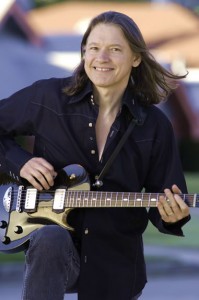
Discussion
No comments for “Interview: Robben Ford”